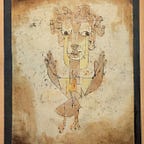Lisan in Liberal Democracy: A setback in Timor-Leste and the need for radical politics
For Tetum version please click here
When the Nobel Laureate Peace Prize recipient Jose Ramos-Horta and the Chief of Armed Forces (F-FDTL) Major General Lere Anan Timur called for Prime Minister Taur Matan Ruak and President Francisco Guterres Lu-Olo to take the first step and talk with Xanana Gusmão (leader of CNRT and maun-boot/big brother), as part of President-organized political dialogue to settle the current political impasse, we witnessed a culture of Lisan in liberal democracy.
Lisan, is a Tetum word that is fluid in concept. It refers to customs that comprise of rules, norms, perceptions, behavior and it a common term for East Timorese to designate their conception of societal system, including the cosmological order. Lisan, comprises both a power network and law-commands that are exercised from Uma-lulik (sacred-house).
The very central form of Lisan was traditional ‘patriarchal socialism’ based on elder authority. Elder people assumed central, perhaps fundamentally determined role in the Lisan order — to maintain and guarantee the stability and order. The decision when it comes to ‘dispute settlement (tesi-lia)’ is on consensual-based and consensual-binding.
Lisan and elder-domination represented the other form of political culture, with liberal democracy at the other hand — and since independence, they had coexisted and confronted each other — and the consequences are pervasive.
The elder-style of Lisan politics was the central traditional form of East Timorese political culture. It exercised its supremacy across the hierarchy of politics in Timor.
The elder, particularly the big brother should not be challenged. We cannot rebel against the elder. We should do the right, good and conformist things so we can get solely the reward from the elder.
Therefore, in a central notion of hierarchy, male-ethics, and elder authority, is the recurrent example to characterize the current deadlock, ongoing political dialogue and the political culture from the dominant politicians in Timor-Leste. I am not saying that old Lisan and elder were repressive, but the ongoing Lisan-styles and constant elder-domination of politics represent a backward move in Timor-Leste.
Interestingly, the ongoing roundtable dialogue took place in 10th February 2020, at the Presidential Office in Dili. At the oval table in the glamourless meeting room, were President of Republic Lu-Olo, Prime Minister Taur Matan Ruak, current General Secretary of FRETILIN Mari Alkatiri, former President Jose Ramos-Horta, General Lere Anan Timur, and senior advisor on International Affairs from the President’s Office, Mr. Roque Rodrigues. However, marked but unfilled was the first-class seat of Xanana Gusmão, the big brother of all big brothers. The elder above all the elders was absent from this critically timed political meeting.
In the meantime, the dialogue confirmed the extra-political measures rather than institutional intervention as liberal philosophy has dreamed about. The other two of Montesquieu’s sovereignty organs — Parliament and Tribunal — were not joined in the table.
The table was filled with the elder generations of 1960s/70s in the diplomatic front such as Mari, Horta and Roque and the ’24 years’ armed fighters such as Lu-Olo, Ruak and Lere. There was no leader present from the clandestine front that was mostly comprised of young people during the Indonesian occupation.
No matter what, the meeting confirmed the unchanging politics of the elders, Lisan-style, and the domination of the 1975 generation from both Armed and Diplomatic front within East Timorese’s politics. The dialogue among maun-alin/brothers was expected to reach a consensual win-win solution.
In this paradoxical logic, the question we should discuss in this regression is that the popular belief in the messianic role of elders in East Timorese’s post-independence liberation struggle.
At the beginning, the elder (lia-nain/custodian of words) was the servant and guardian of the Lisan order. In contrast to the current liberal capitalist order, the elders no longer defend the patriarchal socialism but represent a negation of it. The elders, no longer just the mediators of a unified cosmological order, but the stabilizers of market-state marriage — are fundamental apostles of ‘capitalo-parliamentarianism’ as designated by Maoist philosopher Alain Badiou.
The constant domination of elder-politics, conformist constitutionalism, electoral representative politics of parliamentarianism and the current tendency towards right populist rhetoric in Timor-Leste may just add another extreme wall to limit and prevent us reaching the true emancipation and the real form of politics.
There is no longer a tendency toward ‘real’ contradictions between the elders in Timor-Leste. They are the upper and wealthy political elites. I repeat, the leaders and political parties in Timor-Leste only engage in formalistic and pragmatic contradictions with absolute upper class sentimentality.
The ongoing political uncertainty in Timor-Leste is definitively a political impasse — it confirms the deadlock of liberal democracy — and massive discontentment with liberal democratic institutions and the inability of the constitution to provide a solution to the political impasse, etc. The socio-political sphere of the Timorese nation has all but shrunk into a total abjection — persisting in the interregnum of Gramsci’s morbid symptoms, in which the older order is dying, but the ‘new cannot yet be born’.
Therefore, we should move beyond this bureaucratic formalism. We recognize that Timor-Leste lacks a strong opposition from radical emancipatory groups — but there is only one answer — it is only with a radical politics that we can face and settle our true and fundamental contradictions: the politico-economic impasse, the crisis of liberal democracy and class division of our society.
